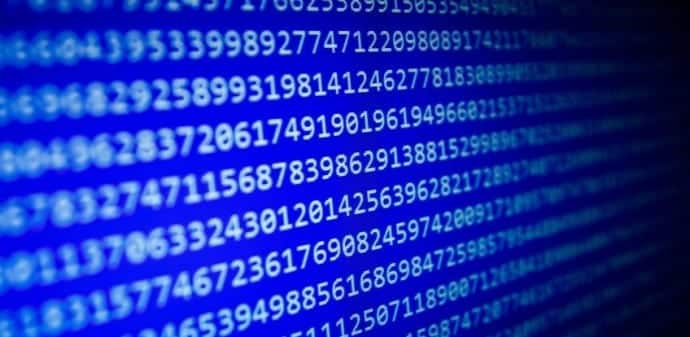Largest prime number ever found in Missouri is a record-breaking 22 million digits
The largest prime number to date has been discovered by the researchers at the University of Central Michigan – it’s got more than 22 million digits, or almost 5 million digits larger than the previous record prime, which was discovered three years ago. A text file containing the entire number takes up 21.7 MB of space.
A prime number is a whole number greater than one that can only be divided by itself and one. The best known primes are the small ones such as 2, 3, 5, and 7. New, very large ones are difficult to find and of great interest to mathematicians.
The newly calculated prime number is 274,207,281– 1, and it comes in at around 22 million digits in length. That makes it almost 5 million digits longer than the previous record-holding prime number, which was discovered three years ago.
This mathematical monster was discovered by Curtis Cooper at the University of Central Missouri in Warrensburg as part of the Great Internet Mersenne Prime Search (GIMPS), a project that harnesses the power of hundreds of thousands of ordinary computers, volunteered by their owners, over the internet.
It took the PC 31 days of non-stop computing to prove that the number was prime. That happened back in September, “but it remained unnoticed until routine maintenance data mined it,” GIMPS reported.
Once it was noticed, the discovery was verified independently by other people with different software and hardware, and announced on January 7, when GIMPS celebrated its 20th anniversary.
“I think I still have the same excitement as when we were lucky enough to find the first one,” Cooper said in a YouTube video published by Australian mathematician and stand-up comedian Matt Parker. “The fourth time here is as exciting as the first time.”
Curtis Cooper, a mathematician at the University of Central Missouri, won US$100,000 for discovering the previous highest prime back in January 2013. In February 2013, the previous record holder was 257,885,161 – 1, a number with more than 17 million digits, along with two other older records.
The new largest prime number has 22,338,618 digits. It belongs to a special class of extremely rare prime numbers known as Mersenne primes, named for Marin Mersenne, the 17th century French monk and mathematician who first studied these integers more than 350 years ago.
The new record prime starts with 300376, then carries on with millions upon millions of other digits, and eventually ends with 43651. Also referred to by its mathematical shorthand, M74207281, the number is calculated by multiplying together 74,207,281 twos and then subtracting one.
So is the gigantic new prime of any use? Mathematicians gladly confess that the discovery has no real practical use.
“It’s just something interesting. It’s just a huge scientific and mathematical achievement,” Parker said in his video.
The new record-breaker is part of a rare group known as Mersenne primes, which means that it can be written as one less than a power of two. There are only 49 known Mersenne primes so far, but mathematicians have honed in on them in their search, as they’re easier to find and test than other primes.
This is Cooper’s fourth record-breaking prime find, and he’s up for a $3,000 prize for this discovery. The next big goal is a $150,000 award, which will be given to whoever finds the first 100-million-digit prime number.
GIMPS bills itself as the largest continuously running “grassroots supercomputing” project on the internet. The project has discovered all 15 of the largest known Mersenne primes, including one found by a volunteer in Canada in 2001.
Anyone who wants to participate can download software called Prime95 that allows the project to use their work or home PC. In return, if your computer makes a new discovery, you can win a cash reward of up to $50,000.

